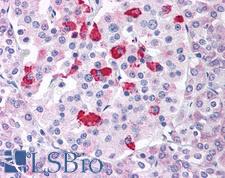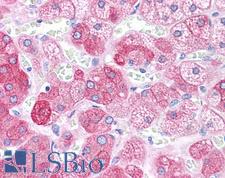Login
Registration enables users to use special features of this website, such as past
order histories, retained contact details for faster checkout, review submissions, and special promotions.
order histories, retained contact details for faster checkout, review submissions, and special promotions.
Forgot password?
Registration enables users to use special features of this website, such as past
order histories, retained contact details for faster checkout, review submissions, and special promotions.
order histories, retained contact details for faster checkout, review submissions, and special promotions.
Quick Order
Products
Antibodies
ELISA and Assay Kits
Research Areas
Infectious Disease
Resources
Purchasing
Reference Material
Contact Us
Location
Corporate Headquarters
Vector Laboratories, Inc.
6737 Mowry Ave
Newark, CA 94560
United States
Telephone Numbers
Customer Service: (800) 227-6666 / (650) 697-3600
Contact Us
Additional Contact Details
Login
Registration enables users to use special features of this website, such as past
order histories, retained contact details for faster checkout, review submissions, and special promotions.
order histories, retained contact details for faster checkout, review submissions, and special promotions.
Forgot password?
Registration enables users to use special features of this website, such as past
order histories, retained contact details for faster checkout, review submissions, and special promotions.
order histories, retained contact details for faster checkout, review submissions, and special promotions.
Quick Order
PathPlusTM BACE1 / BACE Antibodies
BACE-1 (beta-secretase 1) is a peptidase that is responsible for the proteolytic processing of the amyloid precursor protein (APP). It cleaves APP at the N-terminus of the A-beta peptide sequence, between residues 671 and 672 of APP, leads to the generation and extracellular release of beta-cleaved soluble APP, and a corresponding cell-associated C-terminal fragment which is later released by gamma-secretase. Amyloid beta peptides are the primary constituent within amyloid beta plaques (senile plaques), which accumulate in the brains of Alzheimer’s patients. Chemical inhibition of BACE-1 has been shown to reduce beta-amyloid in animal and human studies, making it a target of therapeutic intervention for Alzheimer’s Disease.
References: Lancet Neurol. 2014 Mar; 13(3): 319–329; Transl Neurodegener. 2017; 6: 23.
2 PathPlusTM Antibodies


☰ Filters
Products
Antibodies
(2)
Type
Primary
(2)
Target
BACE1 / BACE
(2)
Reactivity
Human
(2)
Mouse
(2)
Rat
(1)
Bat
(1)
Bovine
(1)
Dog
(1)
Guinea pig
(1)
Hamster
(1)
Horse
(1)
Monkey
(1)
Pig
(1)
Rabbit
(1)
Application
IHC
(2)
IHC-P
(2)
WB
(1)
Host
rabbit
(2)
Product Group
PathPlus Neuro
(2)
Clonality
polyclonal pc
(2)
Format
Unconjugated
(2)
Epitope
Internal
(1)
aa72-121
(1)
Publications
No
(2)

Neuroscience
Fast Shipping
BACE1 / BACE Rabbit anti-Human Polyclonal (Internal) Antibody
Rabbit, Mouse, Dog, Guinea pig, Bovine, Rat, Hamster, Pig, Horse, Bat, Human, Monkey
IHC, IHC-P
Unconjugated
50 µg/$395

Neuroscience
BACE1 / BACE Rabbit anti-Human Polyclonal (aa72-121) Antibody
Mouse, Human
IHC, IHC-P, WB
Unconjugated
100 µl/$375
Viewing 1-2
of 2
product results











